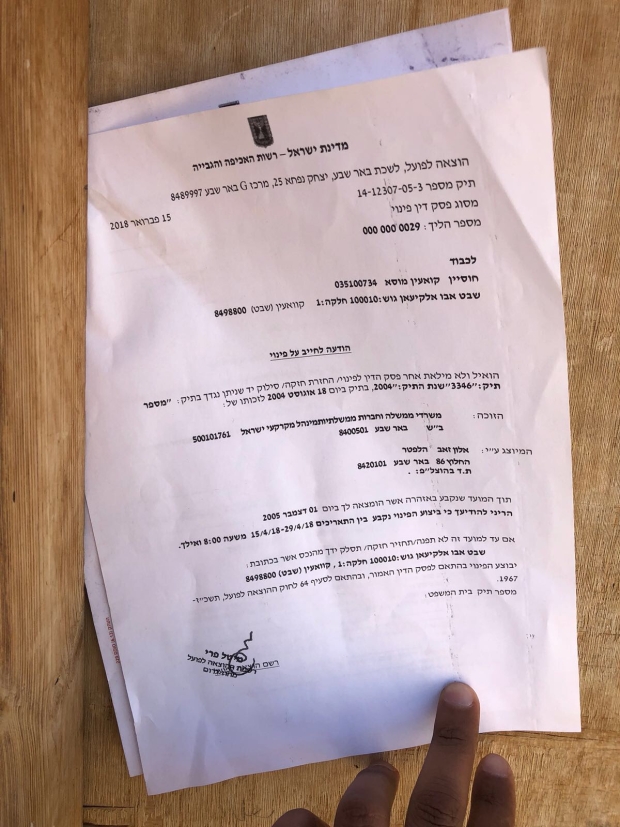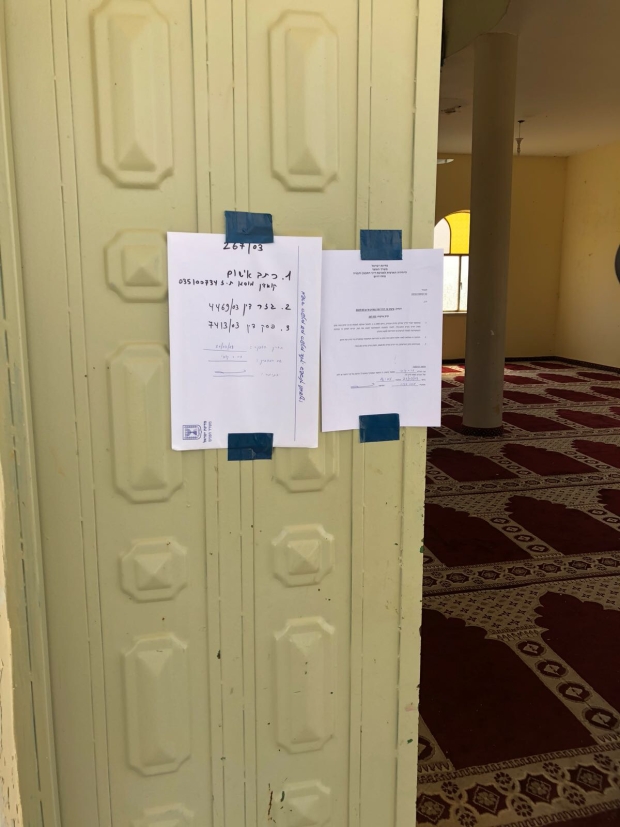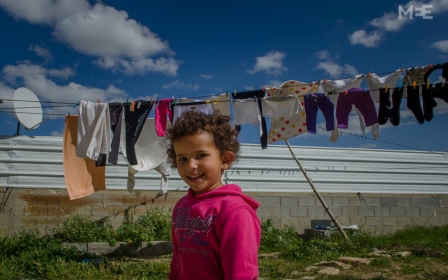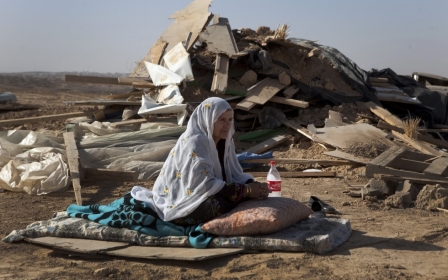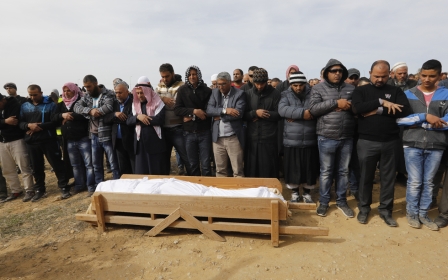Israel delivers eviction orders to villagers in Negev desert
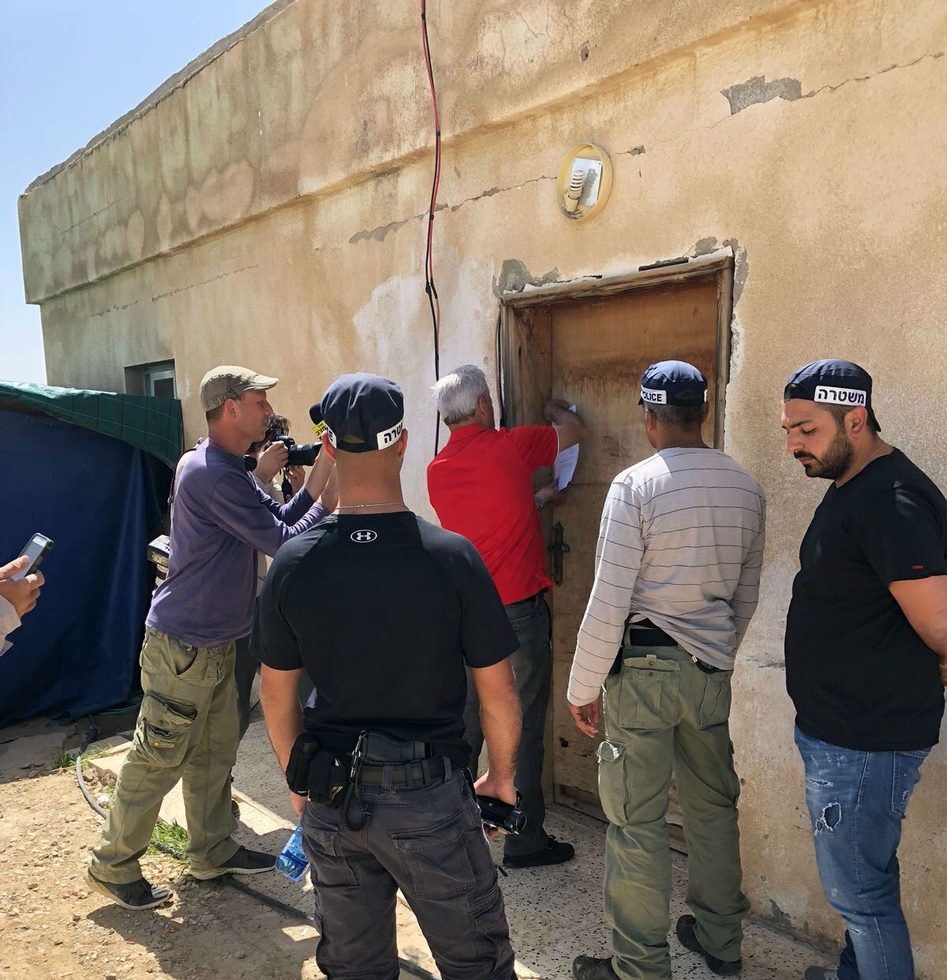
Residents of the Bedouin village of Umm al-Hiran in the Negev (Naqab) desert in southern Israel on Wednesday received eviction and demolition notices which were posted on their doors by Israeli authorities in the latest salvo in a years-long legal battle.
The villagers have been living under the threat of expulsion from the land since 2016 when the Israeli Supreme Court delivered its final demolition ruling against the village so that a Jewish-only town can be built on the site.
Witnesses in Umm al-Hiran, a village of 500 people from the Bedouin tribe of Abu al-Qi'an, told Middle East Eye that on Wednesday that Israeli police pinned orders on the village doors stating that the evictions will take place sometime between 14-29 April from 8am onwards.
Marwan Abu Frieh from Adalah, a centre that advocates for Palestinian minority rights in Israel, told MEE that the police stormed the village at noon.
"They gave people 30 days to evacuate. The orders are based on a previous order issued in 2005 and was challenged in the court."
Abu Frieh said that people are thinking to install a protest tent in the village.
"After almost 15 years in courts against the first demolition order, we end up with the same order," he added.
Almost all the buildings in Umm al-Hiran received eviction and demolition orders including the village mosque.
Members of the Abu Qi'an tribe, which lives in Umm al-Hiran, are among about 100,000 Palestinians who were living in the Negev before the Arab-Israeli war of 1948.
Around 10,000 of the Palestinian Bedouins remained in the newly established state of Israel, while the rest fled or were expelled by Zionist militias, and sought refuge in the Gaza Strip and Sinai.
The Abu al-Qi'an tribe found itself inside Israel.
In 1956, they were moved from their original lands to the area where they are living today by an Israeli military order. Their community is considered illegal or “unrecognised” by the state of Israel.
New MEE newsletter: Jerusalem Dispatch
Sign up to get the latest insights and analysis on Israel-Palestine, alongside Turkey Unpacked and other MEE newsletters
Middle East Eye delivers independent and unrivalled coverage and analysis of the Middle East, North Africa and beyond. To learn more about republishing this content and the associated fees, please fill out this form. More about MEE can be found here.


